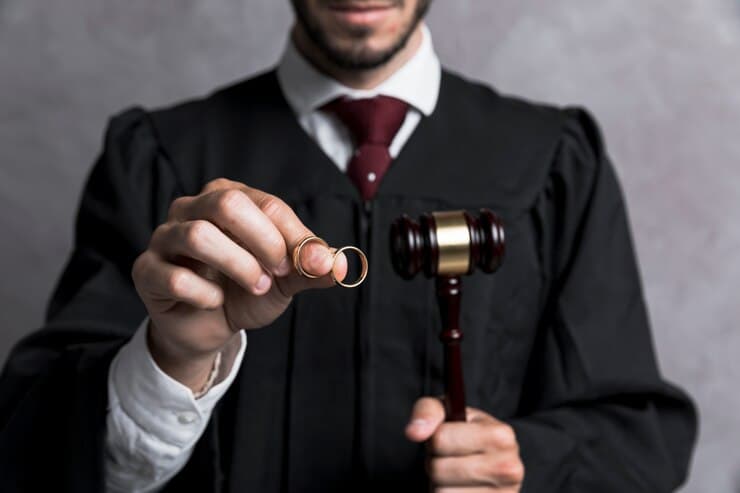Criminal Justice Attorneys: Navigating Complex Legal Defenses

Strong 8k brings an ultra-HD IPTV experience to your living room and your pocket.
Introduction
Criminal defense is a multifaceted and challenging field in the legal profession. Criminal justice attorneys play a crucial role in defending individuals charged with crimes, ranging from minor infractions to serious felonies. One of the most critical aspects of a criminal defense case is the development and presentation of legal defenses. The goal is not only to argue for the innocence of the defendant but also to ensure that their rights are protected throughout the legal process.
In this article, we will explore how criminal justice attorneys navigate complex legal defenses, detailing various types of defenses they may use, strategies they employ, and the challenges they face. Whether you are someone facing criminal charges or someone simply interested in the field of criminal law, understanding these legal defenses is essential to comprehending how the criminal justice system works.
Types of Criminal Defenses
Criminal defense attorneys have several tools at their disposal when building a defense strategy for their clients. These defenses may either be based on factual arguments, legal procedures, or even the rights of the accused. Below are some common defense strategies used by criminal defense lawyers:
1. Innocence
The most straightforward and often the most effective defense is proving that the defendant did not commit the crime. This defense relies on disproving the prosecution’s evidence or showing that the defendant was not present at the scene of the crime. An attorney may use alibi evidence, such as witness testimony or surveillance footage, to support their claim.
In some cases, the defense will focus on challenging the credibility of the prosecution's evidence. This might involve cross-examining witnesses, disputing forensic evidence, or showing that the prosecution’s case does not meet the legal standard of proof beyond a reasonable doubt.
2. Self-Defense
Self-defense is one of the most common affirmative defenses in criminal law. It occurs when the defendant argues that they used force to protect themselves or others from imminent harm. For example, if a person is attacked and responds by using force to defend themselves, they may have a valid self-defense claim.
However, the defense attorney must demonstrate that the force used was reasonable and proportional to the threat posed. In cases involving deadly force, the burden of proving self-defense becomes more complex. Criminal justice attorneys will often present evidence such as medical reports, witness statements, and expert testimony to justify their client’s actions.
3. Insanity Defense
The insanity defense is one of the more complex legal defenses. A defendant may claim that they were not mentally capable of understanding the nature of their actions at the time of the crime due to a severe mental illness. This defense is often used in serious criminal cases, such as murder, where the defendant’s mental state is called into question.
Mental health experts, including psychologists and psychiatrists, often testify in these cases to determine whether the defendant was suffering from a mental illness that affected their capacity to distinguish right from wrong. However, the insanity defense is difficult to prove and often controversial. Jurors are typically skeptical of this defense and may require substantial evidence to be convinced.
4. Duress
The defense of duress applies when a defendant claims they were forced to commit a crime due to the threat of immediate harm or death. In such cases, the defendant argues that they had no reasonable opportunity to escape or avoid the crime.
For example, if someone is coerced into committing a robbery by an armed assailant, they may argue that they were acting under duress. The defense must show that the threat was real, the crime committed was a direct result of the threat, and the defendant had no reasonable way out.
5. Entrapment
Entrapment occurs when law enforcement officers induce someone to commit a crime that they would not have committed otherwise. This defense can be used when a person is persuaded, encouraged, or coerced by an undercover agent or law enforcement officer to commit an illegal act.
Criminal justice attorneys use this defense to challenge law enforcement tactics, arguing that their client was manipulated or pressured into committing a crime that they would not have otherwise considered. The key to this defense is proving that the defendant was not predisposed to commit the offense and that law enforcement actions went beyond mere persuasion.
6. Mistaken Identity
Mistaken identity is another defense that may be raised by a criminal defense lawyer. This defense occurs when the defendant argues that they were wrongly identified as the perpetrator of a crime. In many cases, this involves challenging witness identification, showing that the defendant was not present at the crime scene, or presenting evidence that someone else could have committed the crime.
To effectively raise this defense, criminal justice attorneys may rely on evidence such as alibis, surveillance footage, or expert testimony to discredit the identification process.
7. Lack of Evidence
In criminal cases, the prosecution is required to prove the defendant’s guilt beyond a reasonable doubt. If the prosecution fails to present sufficient evidence or relies on unreliable or circumstantial evidence, the defense attorney may argue that the case should be dismissed.
Lack of evidence may include the absence of forensic evidence, eyewitness testimony, or a clear motive. A skilled criminal defense attorney will scrutinize the prosecution's case for weaknesses and present a compelling argument that there is insufficient evidence to convict.
How Criminal Justice Attorneys Build a Defense Strategy
Building an effective defense strategy involves a thorough understanding of the case, the evidence, and the law. Below are some of the key steps criminal justice attorneys take when preparing a defense:
1. Investigation and Case Review
The first step in any criminal defense case is conducting a detailed investigation. Attorneys examine all available evidence, including police reports, witness statements, surveillance footage, and forensic reports. They may also interview witnesses, review physical evidence, and consult with experts to gather additional information.
This investigation helps the attorney identify weaknesses in the prosecution's case, find potential witnesses to support the defense, and build a strong argument for their client.
2. Pre-Trial Motions and Legal Arguments
Before a trial begins, criminal justice attorneys may file pre-trial motions to challenge evidence, suppress illegally obtained information, or request that certain charges be dropped. For example, if evidence was obtained through an illegal search or seizure, the attorney may file a motion to have that evidence excluded from trial.
These motions are critical in shaping the case and ensuring that the defendant's rights are protected.
3. Negotiating Plea Deals
In many cases, criminal justice attorneys negotiate plea deals with the prosecution. A plea deal involves the defendant agreeing to plead guilty to lesser charges in exchange for a reduced sentence. While plea bargaining is often viewed as a compromise, it can be a strategic move when the defense attorney believes that the client is likely to be convicted if the case goes to trial.
Plea deals require careful negotiation and an understanding of both the legal and personal circumstances surrounding the defendant.
4. Trial Preparation
If a case proceeds to trial, the defense attorney must be fully prepared to argue their case in court. This involves selecting the right legal theories, preparing witnesses, and formulating cross-examination strategies. Criminal defense attorneys will also focus on presenting their own evidence and making persuasive arguments to the judge or jury.
Effective communication is key in the trial phase. Attorneys must be able to articulate their client’s defense in a way that resonates with the judge and jury.
The Challenges Criminal Justice Attorneys Face
Criminal defense is a high-pressure field that requires attorneys to work under tight deadlines, manage complex legal arguments, and deal with emotionally charged cases. Some of the challenges that criminal justice attorneys face include:
Overwhelming Caseloads: Many criminal defense attorneys handle multiple cases at once, each with its own unique complexities. Balancing numerous cases and deadlines can be difficult, especially in serious criminal cases that require significant time and resources.
Pressure from the Public: Criminal defense attorneys often work on high-profile cases that attract media attention. This can create additional pressure to achieve a favorable outcome, especially when public opinion may be strongly against the defendant.
Complex Legalities: The law is not always clear-cut, and criminal justice attorneys must navigate intricate legal rules, case precedents, and statutory laws. They must also stay updated on changes in the law, including any new precedents set by higher courts.
Emotional Stress: Defending clients charged with serious crimes can take an emotional toll. Criminal defense attorneys must maintain a professional demeanor while dealing with difficult cases and, in some situations, the suffering of victims or their families.
Conclusion
Criminal justice attorneys play an essential role in the legal system by ensuring that individuals facing criminal charges have a fair trial and their rights are protected. Navigating complex legal defenses requires a deep understanding of the law, strategic thinking, and careful preparation. From innocence claims to more specialized defenses like self-defense, insanity, or entrapment, attorneys use a variety of strategies to help their clients achieve the best possible outcomes.
While every case is unique, the primary goal of any criminal justice attorney is to provide a robust defense, challenge the prosecution’s case, and secure a favorable result for the defendant. Whether the case ends in a dismissal, a plea deal, or a successful trial outcome, the expertise and dedication of criminal defense attorneys are vital to preserving justice.
FAQ
Q1: What is the most common defense used by criminal defense attorneys?
A: One of the most common defenses is "Innocence," where the defendant argues they did not commit the crime. Other common defenses include self-defense, duress, and mistaken identity.
Q2: How long does it take to prepare a criminal defense case?
A: The preparation time depends on the complexity of the case. Simple cases may take a few weeks, while more complex cases, such as those involving serious charges, could take months to fully prepare.
Q3: Can a criminal defense attorney negotiate a plea deal?
A: Yes, criminal defense attorneys often negotiate plea deals with the prosecution, which can result in reduced charges or a lighter sentence for the defendant.
Q4: How do attorneys challenge evidence in a criminal case?
A: Attorneys may file motions to suppress evidence if it was obtained illegally, or they may challenge the credibility and reliability of the prosecution’s evidence during the trial.
Q5: What happens if the defense attorney cannot prove their client’s innocence?
A: If the defense attorney cannot prove the client’s innocence, they may still argue for reduced charges, a more lenient sentence, or explore plea bargain options with the prosecution.
Note: IndiBlogHub features both user-submitted and editorial content. We do not verify third-party contributions. Read our Disclaimer and Privacy Policyfor details.


